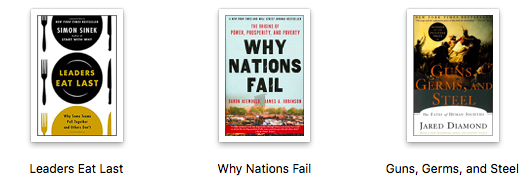Destiny, for example, is roughly the same as thrownness combined with fallenness. It is that part of our lives that is determined for us, our raw materials, if you like, for the project of creating our lives. Another example is the word courage, which he uses more often than the traditional term "authenticity" to mean facing one’s anxiety and rising above it.
Innocence -- the pre-egoic, pre-self-conscious stage of the infant. The innocent is premoral, i.e. is neither bad nor good. Like a wild animal who kills to eat, the innocent is only doing what he or she must do. But an innocent does have a degree of will in the sense of a drive to fulfil their needs!
Rebellion -- the childhood and adolescent stage of developing one’s ego or self-consciousness by means of contrast with adults, from the “no” of the two year old to the “no way” of the teenager. The rebellious person wants freedom, but has as yet no full understanding of the responsibility that goes with it. The teenager may want to spend their allowance in any way they choose -- yet they still expect the parent to provide the money, and will complain about unfairness if they don't get it!
Ordinary -- the normal adult ego, conventional and a little boring, perhaps. They have learned responsibility, but find it too demanding, and so seek refuge in conformity and traditional values.
Creative -- the authentic adult, the existential stage, beyond ego and self-actualizing. This is the person who, accepting destiny, faces anxiety with courage!
His definition of anxiety is “the apprehension cued off by a threat to some value which the individual holds essential to his existence as a self” (1967, p. 72). While not “pure” existentialism, it does obviously include fear of death or “nothingness.”
In his efforts at reconciling Freud and the existentialists, he turns his attention to motivation. His basic motivational construct is the daimonic. The daimonic is the entire system of motives, different for each individual. It is composed of a collection of specific motives called daimons.
daimonic possession. It is then, when the balance among daimons is disrupted, that they should be considered “evil” -- as the phrase implies! This idea is similar to Binswanger's idea of themes, or Horney's idea of coping strategies.
will: The ability to organize oneself in order to achieve one’s goals.
There is the type he refers to as “neo-Puritan,” who is all will, but no love. They have amazing self-discipline, and can “make things happen”... but they have no wishes to act upon. So they become “anal” and perfectionistic, but empty and “dried-up.” The archetypal example is Ebenezer Scrooge.
The second type he refers to as “infantile.” They are all wishes but no will. Filled with dreams and desires, they don’t have the self-discipline to make anything of their dreams and desires, and so become dependent and conformist. They love, but their love means little. Perhaps Homer Simpson is the clearest example!
The last type is the "creative" type. May recommends, wisely, that we should cultivate a balance of these two aspects of our personalities. He said “Man’s task is to unite love and will.” This idea is, in fact, an old one that we find among quite a few theorists. Otto Rank, for example, makes the same contrast with death (which includes both our need for others and our fear of life) and life (which includes both our need for autonomy and our fear of loneliness). Other theorists have talked about communion and agency, homonymy and autonomy, nurturance and assertiveness, affiliation and achievement, and so on.
The second type he refers to as “infantile.” They are all wishes but no will. Filled with dreams and desires, they don’t have the self-discipline to make anything of their dreams and desires, and so become dependent and conformist. They love, but their love means little. Perhaps Homer Simpson is the clearest example!
The last type is the "creative" type. May recommends, wisely, that we should cultivate a balance of these two aspects of our personalities. He said “Man’s task is to unite love and will.” This idea is, in fact, an old one that we find among quite a few theorists. Otto Rank, for example, makes the same contrast with death (which includes both our need for others and our fear of life) and life (which includes both our need for autonomy and our fear of loneliness). Other theorists have talked about communion and agency, homonymy and autonomy, nurturance and assertiveness, affiliation and achievement, and so on.


No comments:
Post a Comment